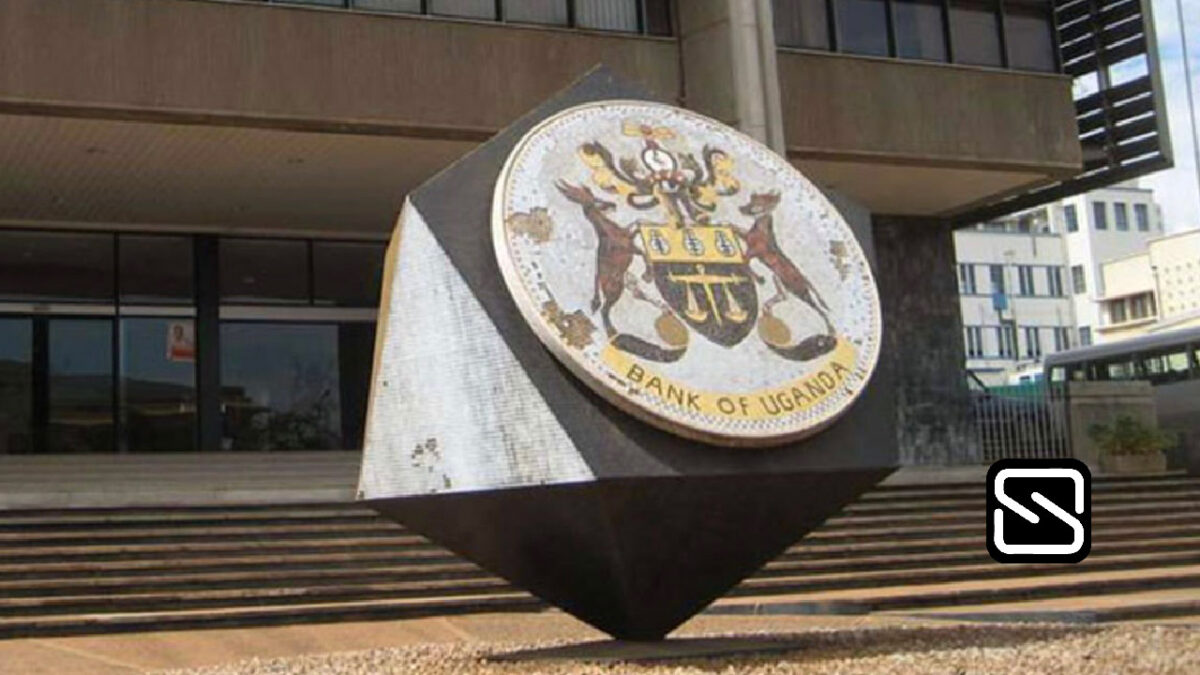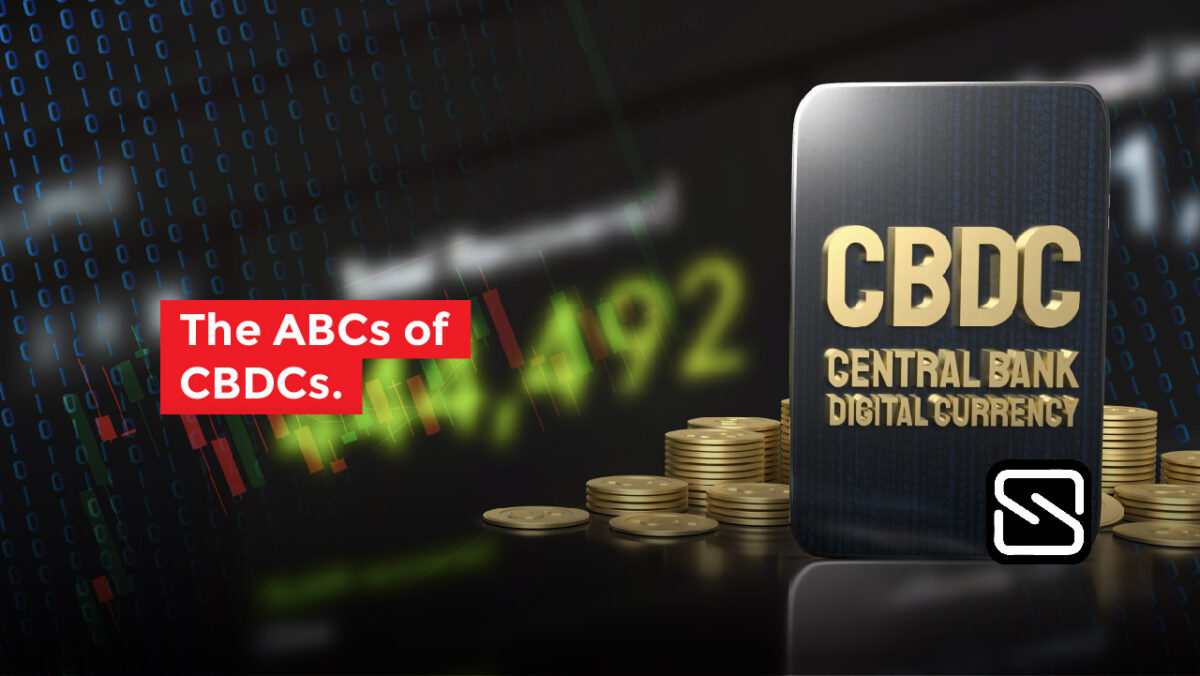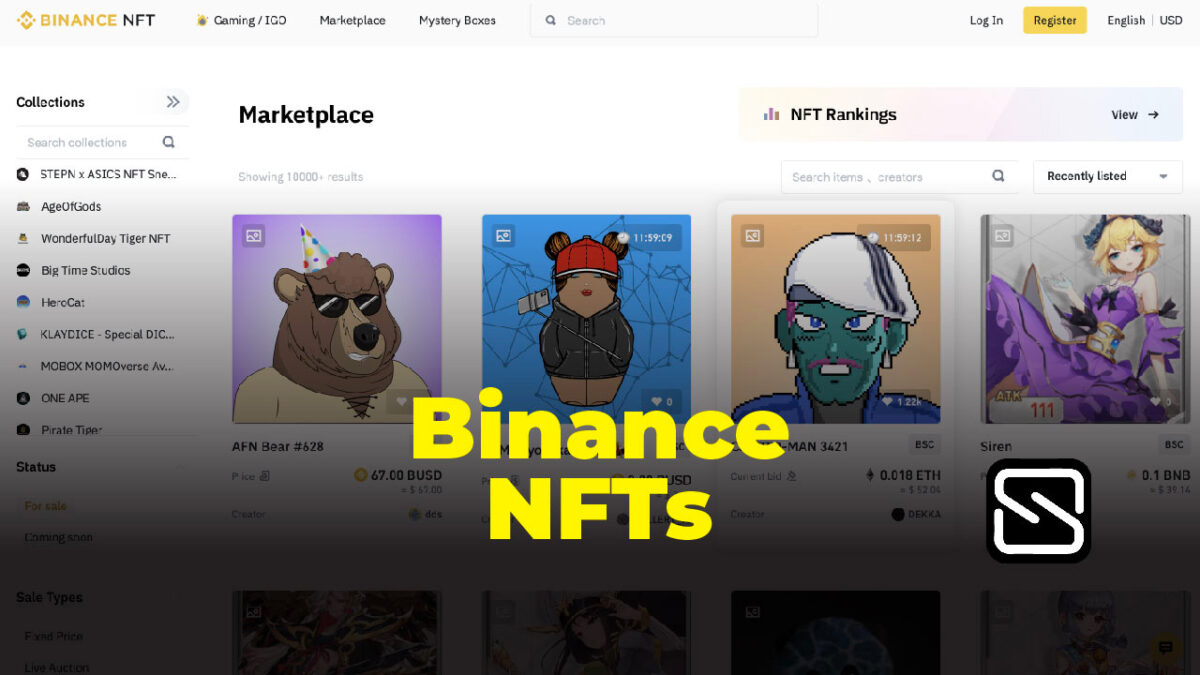NFT, DAO, P2P, BTC, PoW, PoS are common acronyms used in the crypto world with CBDC climbing up as countries across the globe look to dig into the digital currency space. While these acronyms may have been intended to cut down on the mouthfuls of words used when discussing crypto, the ever-growing list makes it a little harder to keep track. Here is a deep dive into a few things you need to know about CBDCs.
Ascertaining the terms and distinctions.
A Central Bank Digital Currency (CBDC) is a digital representation of government-backed, fiat money. It is issued by the central bank and as such is pegged to the value of that country’s fiat currency.
What this means is that instead of printing money in a process that is known to be expensive, the central bank issues these digital tokens. These can be used to purchase or pay for any goods and services within the country.
The concept was originally birthed from the idea of cryptocurrencies and as such CBDCs are also secured by blockchain technology with a digital ledger to record & secure transactions.
It must however be noted that CBDCs are not cryptocurrencies keeping these key distinctions in mind;
- Centralization
CBDCs as the name suggests are regulated and controlled by a Central Bank that has access to all transaction data. This in itself is problematic as such information could be used to impose restrictions on the transactions allowed.
- Privacy & anonymity
As CBDCs are run by the government, they are linked with account data and personal information details which is not the case with cryptocurrencies. While CBDCs could give synchronized access for both the citizens and governments that would speed up service delivery, the trade-off is in privacy as all this data is at the hands of the central authority.
- Blockchain barrier
While both cryptocurrencies and CBDCs thrive on blockchain technology, CBDCs are generally run on private blockchains where access to the digital ledger is controlled by the governing authority. This is the opposite of the situation with cryptocurrencies that pride themselves on having openly viewable ledgers of transactions made possible by the public blockchain technology.
- Volatility vs Stability
In a global cryptocurrency market dominated by a lot of volatility as value is dictated by investor sentiments, usage and user interest, CBDCs reflect the value of fiat currency and are designed for stability and safety. This stability is a key selling feature as it makes them a better candidate as an everyday tool for a financial system.
Breaking down the basics.
CBDCs can be broadly categorized as either Retail or Wholesale CBDCs with further subcategories based on the different usage scenarios;
Retail CBDCs are issued to the general public and allow users to make payments or store them in an electronic wallet or account. These can exist in either a token-based system or an account-based one or even a special hybrid of the two.
In a token-based system, the CBDC is created as a token with a specific denomination. The transfer of a token from one party to another does not require reconciling two databases, but is rather the near-immediate transfer of ownership, very much like handing over banknotes from one person to another.
In an account-based system, the central bank holds bank accounts for users of the CBDC meaning the central bank would manage all accounts for users of the currency. This situation cuts out intermediary financial institutions like commercial banks but translates into significantly more work as the central bank is responsible for the onboarding and management of financial services.
This is where the hybrid approach comes out on top as it allows having an intermediary layer of financial institutions while individuals and enterprises can still enjoy direct deposits of a CBDC from the concerned central bank.
Retail CBDCs allow consumers without access to traditional banking i.e. a bank account to also transfer money digitally making it an important tool to extend financial services into unbanked populations.
Wholesale CBDCs allow for settlement of large volume transactions among financial institutions while reducing the risk and increasing the efficiency of the settlement process. They are used by banks & other financial institutions for both domestic and cross-border transactions.
Currently the majority of wholesale transactions are associated with a large value, requiring shorter settlement times between the financial institutions. Such transactions are systemically important and are routed generally through central banks working on real-time gross settlement (RTGS) systems that have some time lags.
A Domestic Payment Wholesale CBDC takes up this role in a more reliable, secure and quicker transaction system relying on blockchain to complete reconciliation, confirmation, and finally completion of transactions.
Cross-border Payments on the other hand present a more important use-scenario for wholesale CBDCs: Cross-border transactions rely on various intermediaries and jurisdictions for even single payments. Having these transactions on blockchain technology as Cross-border Payment Wholesale CBDCs streamlines this.
Wholesale CBDCs can be crafted in three different scenarios: into local wholesale CBDCs, local transferable wholesale CBDCs or universal wholesale CBDC depending on the needs of the nation.
Case Studies.
The reasons for adopting CBDCs vary on a case-by-case basis but the general consensus is that the COVID pandemic accelerated the need for more digital solutions that could provide contactless transfers of funds.
While physical currency is still widely exchanged and accepted as a form of payment, if you have ever been stranded and needed an instant mobile money or bank transfer to bail you out, then you can surely testify to the importance of having digital money at your disposal.
As of May 2020, only 35 countries were exploring CBDCs but since then this number has grown to about 87 countries accounting for about 90% of the global GDP according to the Atlantic Council CBDC tracker– that keeps track of the global progress with these innovations.
These 87 countries are at different stages in the CBDC development process. Following the launch of the eNaira, Nigeria is the latest addition on a list that now has 9 countries that have launched their CBDC.
With a 2020 GDP of 432 billion (more than 20 times the combined GDP of the other 8 countries that have launched), Nigeria presents a larger economic landscape for observing the implementation of CBDCs as compared to the Caribbean island nations that have chartered the path.
eNaira: How Does It Work?
The list of the leading 9 also includes the Bahamas which was the first country in the world to adopt a CBDC with their Sand Dollar launching in October 2020. As a collection of about 700 islands, the project was key to extending financial services to parts of the population left without access by private profit-driven commercial actors.
The other 7 (i.e. Antigua and Barbuda, Dominica, Grenada, Montserrat, St. Kitts and Nevis, Saint Lucia and St. Vincent and the Grenadines) came together as the Eastern Caribbean Currency Union to create DCash as a digital version of the existing Eastern Caribbean dollar used across much of the region.
Although some countries have similar existing systems, this was the first blockchain-based currency introduced by any of the world’s currency unions.
As more governments around the world look into CBDCs, it gets clearer to see how this one concept can be implemented through different models. It still remains to be seen if/how best these digital currencies can effectively be implemented while maintaining financial inclusivity especially on the African continent that has historically been excluded.









